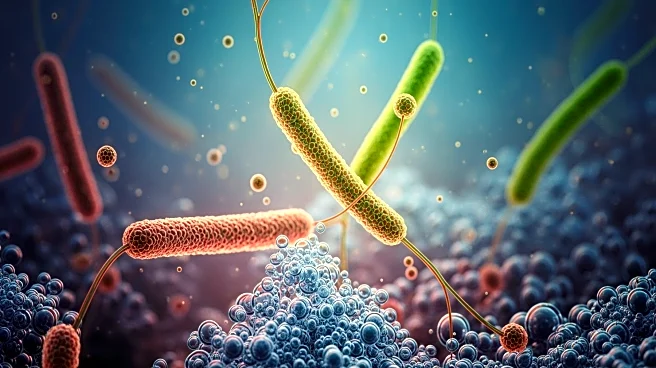What's Happening?
A recent study utilizing metaproteomics and metagenomics has uncovered the microbial pathways involved in organic matter degradation and methanogenesis in a marginally producing natural gas well. The research
highlights the presence of diverse microbial communities capable of degrading organic matter and producing methane. The study found that these microbial communities, dominated by Proteobacteria, Bacteroidetes, and Firmicutes, are involved in various metabolic pathways, including methanogenesis. The findings suggest that these microbial processes could be harnessed to enhance methane production in natural gas wells, potentially serving as geobioreactors for biogenic methane production.
Why It's Important?
The study's findings have significant implications for the energy industry, particularly in the context of sustainable energy production. By understanding the microbial processes that contribute to methane production, energy companies could potentially enhance biogenic methane production in natural gas wells, reducing reliance on fossil fuels. This approach could also provide a more sustainable method of methane production, utilizing existing natural gas infrastructure. Additionally, the research highlights the potential for using organic matter injection to stimulate methanogenesis, offering a novel approach to increasing natural gas yields.
Beyond the Headlines
The study raises important questions about the long-term sustainability and environmental impact of using microbial processes for methane production. While the potential for increased methane yields is promising, it is crucial to consider the ecological implications of altering microbial communities in natural gas wells. Further research is needed to assess the environmental impact and feasibility of scaling up these processes for commercial use.










